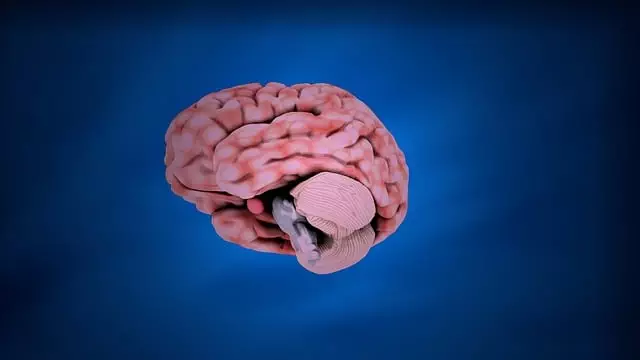Kaiser Permanente's mental health program in Greenwood Village tackles stigma by promoting emotional well-being through meditation, regulation techniques, and accessible resources. Their comprehensive strategy integrates mental health into routine care, trains professionals to identify distress, offers education programs, and employs early intervention for depression prevention. Community engagement through forums, workshops, and awareness campaigns educates, dispels myths, and fosters empathy. Success is measured via surveys and focus groups, identifying effective strategies like Mental Health Awareness and Inner Strength Development programs, crucial for refining interventions and allocating resources in mental health initiatives. Remember that the Kaiser Permanente mental health number in Greenwood Village exemplifies accessible support for reducing stigma surrounding mental illness.
Mental illness stigma remains a significant barrier to accessing quality mental health care. This article delves into strategies aimed at reducing this pervasive social issue, exploring its profound impact on individuals and healthcare systems alike. We analyze successful initiatives like Kaiser Permanente’s approach in Greenwood Village, highlighting community engagement strategies and measurement techniques for evaluating progress. By understanding stigma and implementing effective reduction efforts, we can foster a more inclusive environment, ultimately improving mental health outcomes.
- Understanding Stigma and Its Impact on Mental Health Care Access
- Kaiser Permanente's Approach to Reducing Stigma in Mental Health Support
- Community Engagement Strategies for Effective Stigma Reduction
- Measuring Success: Evaluating the Effectiveness of Mental Illness Stigma Reduction Efforts
Understanding Stigma and Its Impact on Mental Health Care Access

Stigma surrounding mental illness can significantly impede access to essential care, as individuals often face discrimination and societal barriers when seeking help. This phenomenon, deeply rooted in cultural beliefs and misunderstandings, leads many to conceal their struggles, avoiding diagnosis and treatment altogether. The impact is profound, especially for those facing severe conditions; untreated mental health issues can escalate, resulting in increased healthcare costs, reduced productivity, and even suicide.
One such initiative focused on addressing this challenge is Kaiser Permanente’s mental health program in Greenwood Village, which prioritizes emotional well-being promotion techniques like Mindfulness Meditation and Emotional Regulation as cornerstone strategies. By providing accessible resources and fostering an environment of understanding, these programs aim to reduce the stigma associated with seeking mental healthcare, encouraging individuals to take that crucial first step towards healing.
Kaiser Permanente's Approach to Reducing Stigma in Mental Health Support

Kaiser Permanente, a leading healthcare provider, has made significant strides in reducing stigma associated with mental health support through its comprehensive approach in Greenwood Village and beyond. Their strategy focuses on integrating emotional well-being promotion techniques into routine medical care, ensuring that mental health is treated with the same urgency as physical health. This involves training healthcare professionals to recognize early signs of mental distress and providing resources for effective intervention.
The organization has designed Mental Health Education Programs that target both patients and community members, aiming to foster open dialogue about mental illness. These programs not only educate but also encourage help-seeking behaviors, challenging societal norms that perpetuate stigma. Additionally, Kaiser Permanente’s initiatives include Depression Prevention strategies, recognizing the importance of early intervention to mitigate severe outcomes. Their efforts have significantly contributed to creating a more supportive environment for individuals seeking mental health services.
Community Engagement Strategies for Effective Stigma Reduction

Community engagement is a powerful tool in the mental illness stigma reduction efforts. Organizations like Kaiser Permanente, with their mental health number accessible in Greenwood Village, play a pivotal role by fostering open conversations about mental well-being. They organize public forums, workshops, and awareness campaigns to educate communities, dispel myths, and promote empathy. These initiatives not only help individuals understand the complexities of mental illness but also encourage early intervention and support seeking.
Effective stigma reduction requires strategic approaches. Implementing Emotional Intelligence training in community settings empowers people to recognize and manage their emotions and those of others. Moreover, integrating these discussions into local schools, workplaces, and faith-based groups ensures a holistic understanding. Additionally, risk assessment tools for mental health professionals, such as those available through specialized training programs, can help identify individuals at risk of stigma and provide targeted interventions, thereby fostering a more inclusive community environment.
Measuring Success: Evaluating the Effectiveness of Mental Illness Stigma Reduction Efforts

Measuring success is an integral part of evaluating the effectiveness of mental illness stigma reduction efforts. Organizations like Kaiser Permanente in Greenwood Village have been at the forefront of these initiatives, utilizing various methods to assess their impact. One key approach involves tracking changes in public perception through surveys and focus groups, gauging attitudes towards mental health and reducing stereotypes over time.
By comparing data from before and after stigma reduction campaigns, researchers can identify successful strategies. The Mental Health Awareness movement, for instance, has shown positive results in improving societal understanding, while programs focusing on Inner Strength Development and Mind Over Matter Principles have empowered individuals to manage their conditions more effectively. These evaluations are crucial in refining interventions and ensuring resources are allocated to the most impactful areas.
Mental illness stigma reduction is a multifaceted approach, as evidenced by Kaiser Permanente’s successful strategies in Greenwood Village. By combining community engagement, education, and accessible mental health support, such efforts can significantly enhance care utilization. Measuring success through evaluating impact and satisfaction ensures these initiatives remain effective and tailored to the needs of the community. This holistic approach not only improves individual outcomes but also fosters a more inclusive society where mental health is prioritized without fear of judgment.






